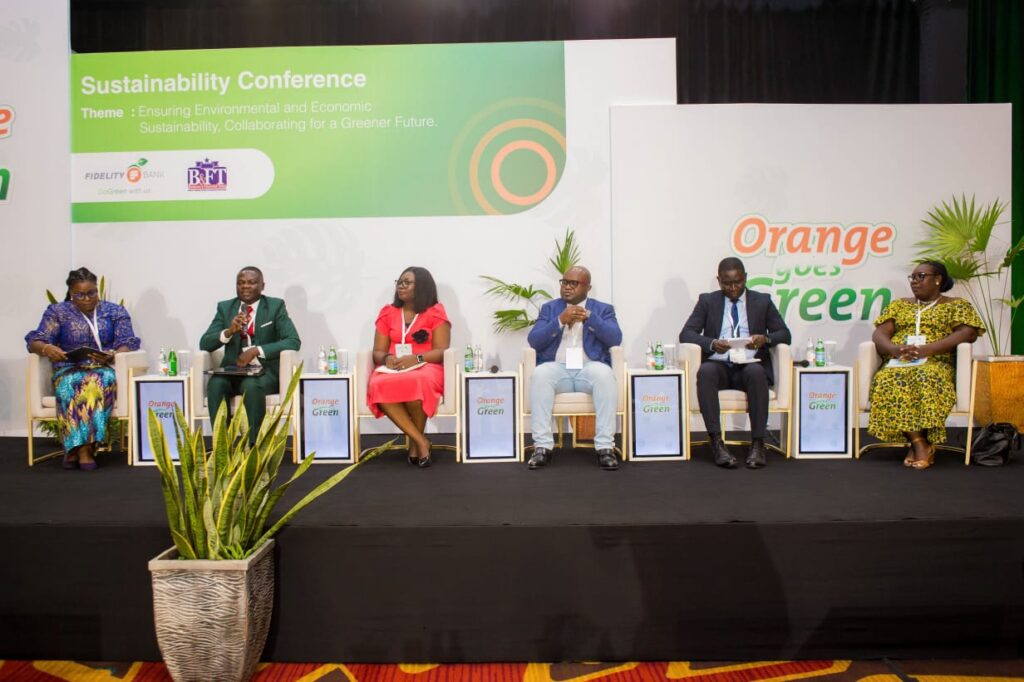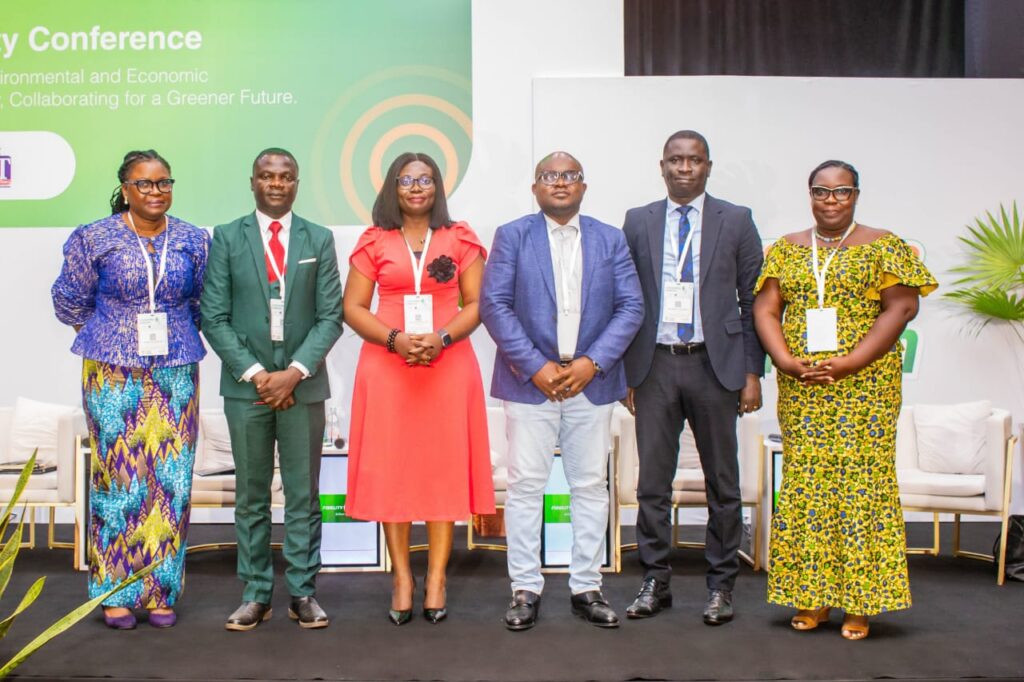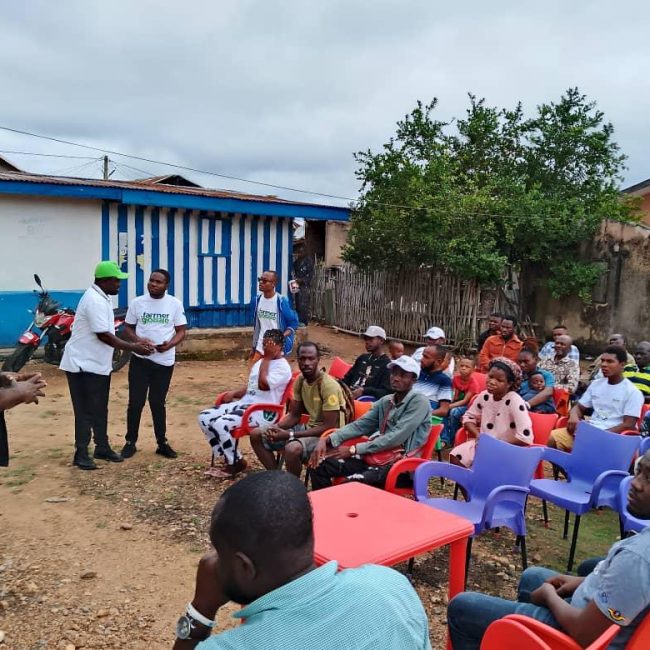
Farmers at the Forefront of Climate Action – Insights from Sustainability Summit 2024
At the recently concluded Sustainability Summit 2024, hosted by Fidelity Bank Ghana and Business & Financial Times, the spotlight was placed on one of the most critical issues of our time: climate change. In this discussion, Farmer Globale’s Founder and CEO, Mr. Fred Kukubor, delivered an inspiring address that highlighted the pivotal role farmers play in mitigating and adapting to the impacts of climate change. His presentation focused on three critical areas: climate-resilient technologies, incentivizing climate action, and empowering farmers through policy.
1. Climate-Resilient Technologies: Transforming the Mindset of Farmers
Mr. Kukubor began by underscoring the urgency for a mindset shift among farmers to embrace new technologies and innovations that can enhance productivity and resilience in the face of growing climate challenges. He emphasized the need for drought-resistant seeds, efficient irrigation systems, and renewable energy sources as essential tools that can help farmers adapt to erratic weather patterns and mitigate the impacts of climate extremes.
However, access to these technologies remains a significant barrier, particularly for smallholder farmers who often lack the financial resources and technical knowledge needed for implementation. According to Mr. Kukubor, overcoming this barrier is crucial for building resilience in agricultural systems and ensuring food security in vulnerable regions like Ghana. This requires both public and private sector intervention to improve access to these technologies and ensure that even the most disadvantaged farmers can benefit from their adoption.
2. Incentivizing Climate Action: The Power of Carbon Markets
One of the most thought-provoking parts of Mr. Kukubor’s presentation was his discussion on the importance of creating sustainable incentives for farmers to invest in climate mitigation measures, such as reforestation and land restoration. He pointed out the potential of carbon credit and offset markets as tools to incentivize these actions. By participating in carbon markets, farmers can not only contribute to global efforts to reduce greenhouse gas emissions but also enhance their livelihoods by earning additional income.
He highlighted the significant growth in the global carbon market, which, according to Refinitiv, grew from US$261 billion in 2020 to over US$950 billion in 2023. Ghana has committed to mitigating 64 million tonnes of its greenhouse gas emissions by 2030, and this will require substantial investments across different sectors, including agriculture. The World Bank estimates that maintaining climate-smart agriculture in Ghana will require around US$2 billion annually. This underscores the need for policy frameworks that encourage farmers to participate in climate action through mechanisms such as Emission Reduction Rights (ERR).

3. Empowering Farmers through Policy: Bridging the Financing Gap
In his final key point, Mr. Kukubor called for a robust policy framework that positions farmers at the center of the climate discourse. He noted that while farmers are key players in climate action, many are still underserved by current policies and lack access to the financial tools they need to make meaningful investments in climate-smart practices.
Africa’s agricultural sector faces an annual financing gap of $23 billion, with many smallholder farmers unable to access credit and other financial resources (AfDB). To address this, Mr. Kukubor emphasized the need for tailored policy interventions that provide farmers with access to credit, training, and financial support. He advocated for policies that ensure farmers are not left behind but are instead equipped with the tools they need to actively participate in and benefit from climate action.

A Call to Action
In conclusion, Mr. Fred Kukubor’s address at the Sustainability Summit 2024 brought to the forefront the indispensable role farmers play in climate change mitigation and adaptation. By leveraging climate-resilient technologies, creating sustainable incentives through carbon markets, and empowering farmers with the right policy frameworks, we can drive meaningful change and secure a more sustainable future for all.
Farmer Globale remains committed to supporting these efforts through our ongoing projects and collaborations with stakeholders in both the private and public sectors. Together, we can ensure that farmers are not just beneficiaries but also key partners in the global fight against climate change.



